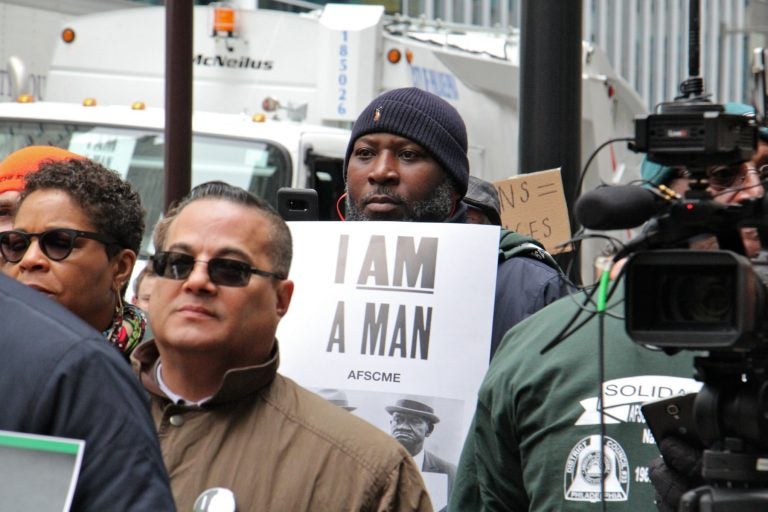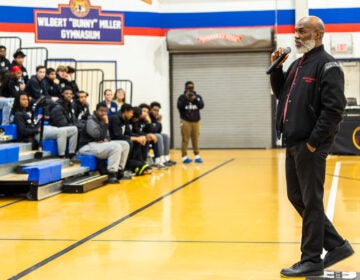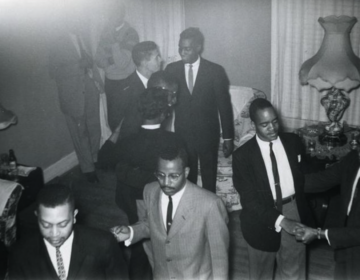Philadelphia, nation mark 50 years since deaths of Memphis sanitation workers
The deaths of Echol Cole and Robert Walker ignited the strike that drew the Rev. Martin Luther King Jr. to Memphis where he was assassinated in April 1968.

Members of AFSCME District Council 33, Philadelphia, gather outside City Hall for a moment of silence to remember Echol Cole and Robert Walker, two sanitation workers whose deaths 50 years ago sparked a national movement for civil rights. (Emma Lee/WHYY)
Sanitation workers who went on a strike that brought Martin Luther King Jr. to Memphis, Tennessee, 50 years ago are being remembered across the country as courageous men who made important contributions to the civil rights movement.
A handful of sanitation workers who marched in Memphis demanding higher pay and safer working conditions attended a ceremony in that city Thursday honoring two colleagues killed by a malfunctioning garbage truck on Feb. 1, 1968.
Members of the American Federation of State, County and Municipal Employees laid two wreaths at a historical marker near the site where Echol Cole and Robert Walker died. Their deaths ignited the strike that drew King to Memphis. He was assassinated while standing on the balcony of the Lorraine Motel on April 4, 1968.
In Philadelphia Thursday, union workers, City Council members, and Mayor Jim Kenney gathered to commemorate the 50th anniversary of the two deaths with a moment of silence. Similar events were held in 70 cities.
At City Hall, Lee Saunders, president of the American Federation of State, County and Municipal Employees, recounted the deaths of Cole and Walker.
“They died in the most violent way imaginable because of the negligence of their employer that was directly tied to racial hostility,” he said.
After their deaths, black sanitation workers took to the streets with signs declaring, “I am a man.”
“They not only struck the next day for better wages, and better working conditions and better benefits. But they struck for dignity. They struck for respect on the job. They struck because they wanted to be treated as men, not boys,” he added.
Kenney used the opportunity to praise Philadelphia’s workers.
“I am happy to be mayor of a city that’s such a strong labor city. We understand how hard you work. We understand that days like today, and days when it snows, and days when it rains, and when it’s 90 degrees, men and women are still walking behind the sanitation trucks,” he said. “Because you care about the city, you care about the job that you do.”
WHYY is your source for fact-based, in-depth journalism and information. As a nonprofit organization, we rely on financial support from readers like you. Please give today.




